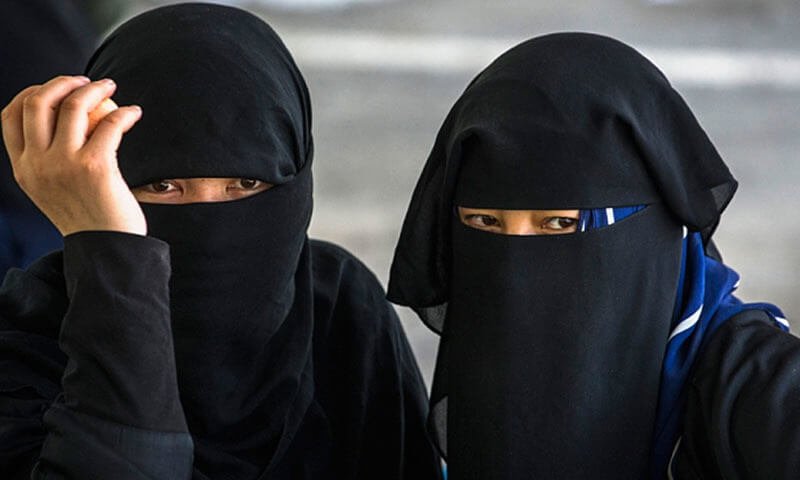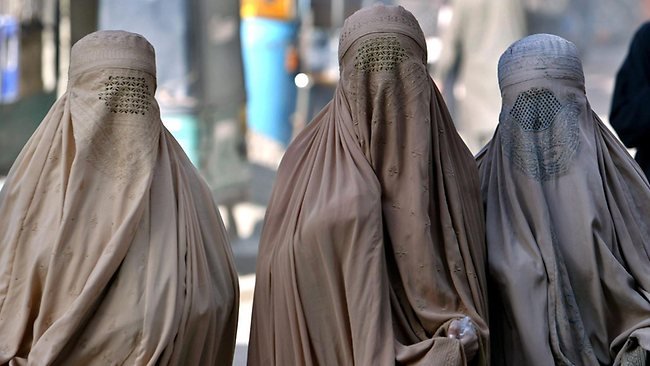What’s the typical response of a politician on a controversial decision of his or her rival? Raise an alarm about the society going to the dogs and say it’s the worst possible thing.
Congress spokesperson Manish Tewari did something similar while responding to BJP minister Mahesh Sharma’s controversial decision to ask tourists not to wear clothes like skirts in India. Sharma on Sunday told the media that foreign tourists will be handed out kits of do’s and don’t, one of the points in the advisory asking the women not to wear short skirts. Both for their safety and for respecting India’s culture.
Tewari hit back by asking whether the BJP government wanted to undertake the most regressive step in his view – wrap women in a burqa.

He said, “If Mahesh Sharma and his ideological co-travellers have their way, every woman would be wrapped in a burqa and permanently ensconced in their homes. The culture minister of India at times comes out with the most uncultured remarks.”
But by comparing the diktat to forcing women into burqas, did Tewari also deem the burqa “uncultured”?
Tewari is entitled to his opinion. But while scoring a political point, Tewari ended up insulting some women’s choice to wear the full-length robe that was not even remotely part of the discussion. And Muslim women aren’t amused.

Saima Bhat, a journalist who works for a popular web media portal in Kashmir, told ScoopWhoop News, “Don’t comment on the burqa without knowing what women want. I am totally allowed to give up the veil whenever I want. It wasn’t forced on me in the first place. It’s really my choice.”
The debate on the burqa is a long-standing one. In fact, seven years ago, it reached a crescendo when former French President Nicolas Sarkozy publicly remarked that it was a sign of a woman’s subservience and questions her dignity.

Muslim women from around the world, including India, had lashed out at Sarkozy, calling his statement “offensive, divisive, ignorant”. The women insisted that whether Sarkozy or the rest of the world believed them or not, the burqa or hijab was an article of their faith (although that’s debatable) which they simply could not, and did not, want to disown.
Perhaps Tewari should go back to some of those media reports to understand that a section of women indeed are at peace with the veil and do not appreciate their choice being mocked.
It’s not to say that it ends the debate on the full-length robe, the burqa, that almost completely shields the women from view.
Commentator Samiah Sultana, writing in this blog, admitted that there are Muslim women who detest the burqa and wear it out of compulsion, fear or violence as punishment for not complying. But she didn’t rule out choice either.
“The women who wear a hijab, niqab and/or burqa are not a unified, homogenous, oppressed lot…Understood within this framework, it is clear that wearing the burqa, hijab and niqab may be a choice for some Muslim women, but for a lot of others, it isn’t,” she wrote.
Bhat even went on to glorify it, saying she felt secure in the robe and felt closer to her faith when wearing it. “This is my religion’s way of protecting me,” she said. But that’s a debate for another time.

Fatima Qazi, who teaches in a pre-primary school in Mumbai, says passing judgement on the clothing item, and to cite it as being the ultimate example of oppression was offensive and a very bad idea.
“Manish Tewari did not need to drag in Islam or Muslim community into an unrelated debate. He gave it a communal colour when it was totally avoidable,” she told ScoopWhoop News.
Qazi, who identifies herself as a staunch Islam follower and says she swears by the Shariah, said the burqa for her is a religious diktat and she was happy wearing it.

















